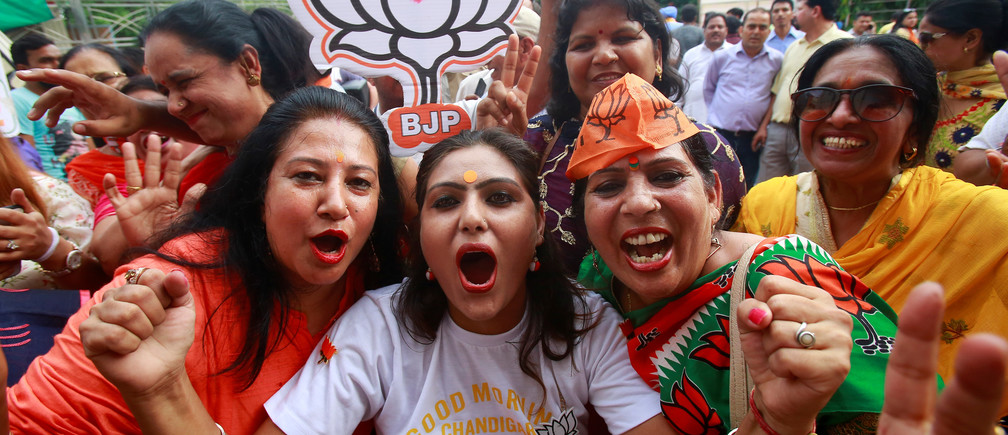
In the run-up to the Lok Sabha elections, the Bharatiya Janata Party (BJP) has unveiled a significant portion of its candidates, showcasing a noteworthy trend towards increased representation of women in its lineup. Among the 419 candidates announced by the BJP thus far, 67 are women, marking a notable increase from previous elections. This figure translates to 16% of the total candidates, a surge from the 12% representation in the 2019 polls but still falling short of the 33% envisioned in the Women’s Reservation Bill of 2023.
Since 2014, the BJP has been steadily increasing the participation of women candidates in elections. Back then, women constituted merely 9% of its candidates, a figure that has steadily climbed over the years. Despite this progress, the party acknowledges the necessity for further efforts in identifying and training more women leaders to elevate their proportion in electoral politics.
Prime Minister Narendra Modi’s advocacy for women-led development and empowerment has been evident, with initiatives like the Women’s Reservation Bill receiving parliamentary approval. His push for greater female representation within the party has influenced the decision-making process, as reflected in the higher inclusion of women candidates.
The BJP’s focus on women’s empowerment aligns with its broader strategy of nurturing key constituencies, including the 470 million women listed as voters for the upcoming polls. Government schemes aimed at women’s welfare, such as Beti Bachao, Beti Padhao, and the recently introduced Lakhpati Didi and Drone Didi schemes, underscore the party’s commitment to women-centric policies.
While the representation of women in Parliament has witnessed an upward trajectory over the years, there remains a concerted effort within the BJP to diversify the backgrounds of women entering politics. Emphasizing the inclusion of women from disadvantaged groups and non-political backgrounds, the party aims to break traditional barriers and foster a more inclusive political landscape.
Despite notable examples like President Droupadi Murmu and candidates like Rekha Patra, who symbolize the BJP’s commitment to empowering women from diverse backgrounds, there’s acknowledgment that such instances are still limited. Efforts by the party’s women’s wing, particularly the Mahila Morcha, focus on identifying and nurturing women leaders from non-privileged backgrounds, aiming to challenge existing power dynamics at local levels.
Nevertheless, among the 67 women candidates named so far, there’s a notable presence of individuals hailing from political families, indicating the continued influence of established political lineages within the party.
As the Lok Sabha elections draw nearer, the BJP’s trajectory towards increased female representation reflects its evolving stance on gender inclusivity in politics. While significant strides have been made, the party recognizes the ongoing imperative to expand opportunities for women in electoral leadership roles, ensuring a more representative and equitable political landscape in the years to come.


